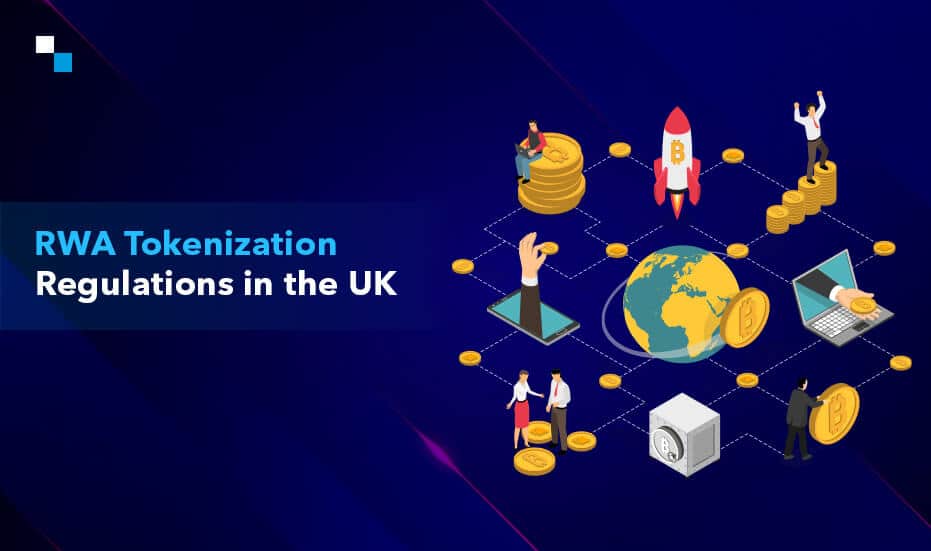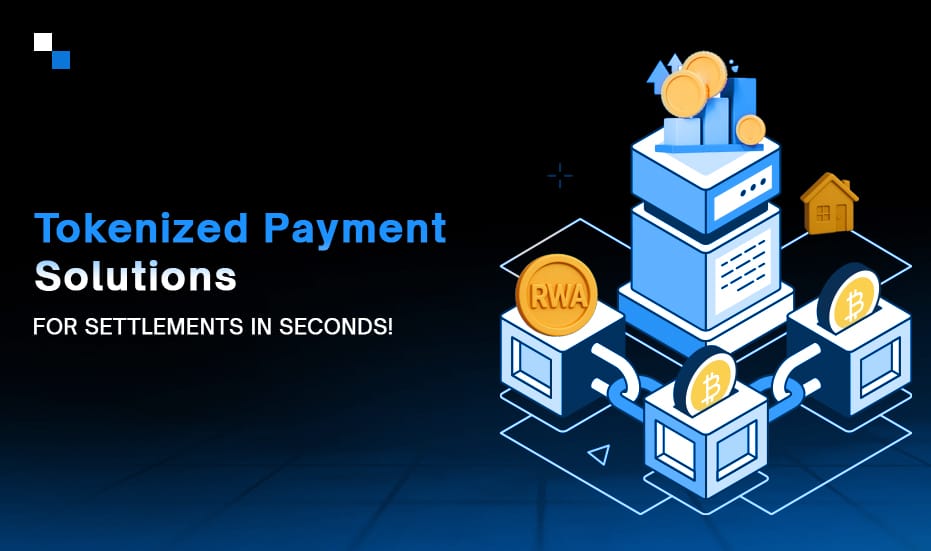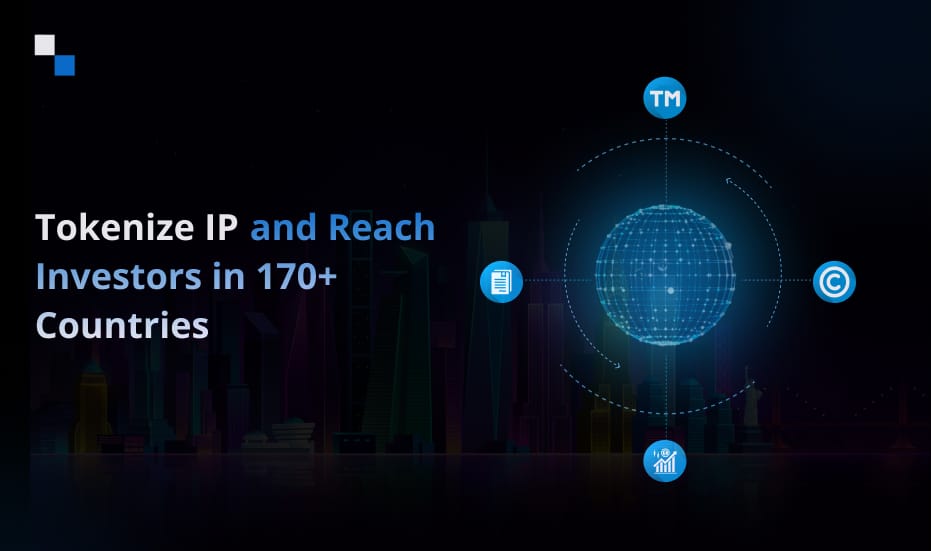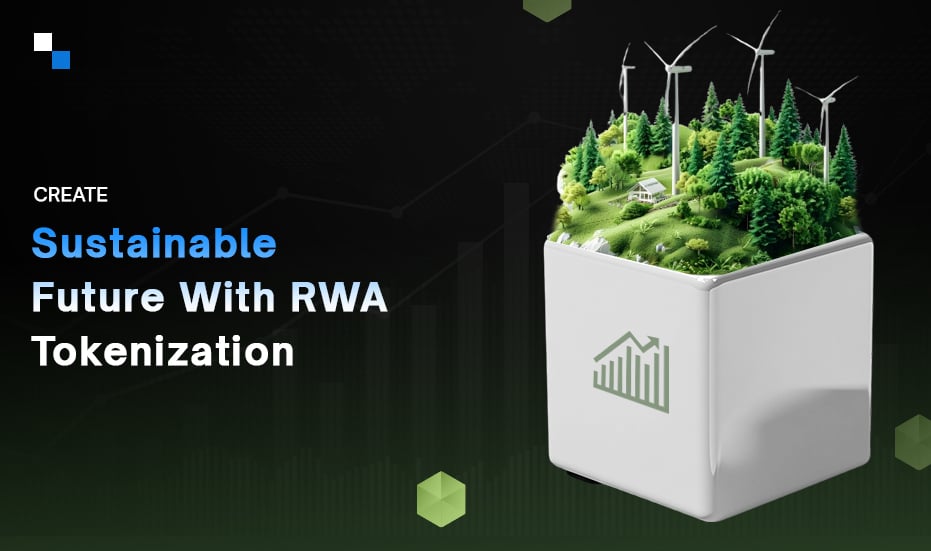
How Much Does NFT Marketplace Platform Development Cost in 2024?
December 7, 2023
Crypto Exchange App Development in 2024: An Ultimate Guide
December 8, 2023The rapid advancement of blockchain technology and the emergence of digital assets have introduced new opportunities and challenges for the financial sector. Asset tokenization, the process of converting traditional assets into digital tokens on a blockchain, has emerged as a transformative innovation, offering increased efficiency, fractional ownership, and enhanced liquidity. However, this innovative technology has also spurred regulatory concerns, prompting governments and financial authorities around the globe to grapple with the complexities of regulating asset tokenization.
The Financial Conduct Authority (FCA) plays a pivotal role in overseeing the asset tokenization regulations in the UK of financial markets and protecting consumer interests. While the FCA has not yet introduced specific regulations for asset tokenization, it has taken a proactive approach to engaging with industry participants and developing a framework to address the emerging risks and opportunities associated with this technology.
Regulatory Framework for Asset Tokenization UK
Understanding the Different Categories of Tokenized Assets:
The FCA has identified three primary categories of tokenized assets, each with distinct regulatory implications:
Security Tokens: These tokens represent ownership or investment rights in underlying assets, akin to traditional securities like stocks or bonds. Security tokens fall under the same regulatory framework as traditional securities, requiring authorization from the FCA and adherence to investor protection rules.
Utility Tokens: These tokens provide access to goods or services within a specific ecosystem or platform. Unlike security tokens, utility tokens generally do not represent ownership or investment rights and are not considered securities. However, they may still fall under the scope of other regulations, such as consumer protection laws.
E-money Tokens: These tokens represent a digital form of money, analogous to electronic money, and can be used for payments or transactions. E-money tokens are regulated under the Electronic Money Regulations 2011, requiring authorization from the FCA and compliance with anti-money laundering (AML) and counter-terrorist financing (CTF) obligations.
Key Regulatory Considerations
When evaluating the Digital Asset tokenization Regulation UK implications, the FCA considers several crucial factors:
Nature of the Underlying Asset: The type of asset being tokenized determines whether the token falls under the category of security token, utility token, or e-money token.
Structure of the Token Offering: The manner in which the tokens are offered and distributed determines whether the offering is subject to specific regulatory requirements, such as prospectus requirements or marketing restrictions.
Intended Use Cases of the Tokens: The intended applications of the tokens determine whether they fall under existing regulations or require new regulatory guidance.
Emerging Regulatory Trends
The FCA is actively shaping the RWA tokenization Regulation landscape, taking a proactive approach to foster innovation while safeguarding consumer interests. Key emerging regulatory trends include:
Regulatory Sandboxes
The FCA has established regulatory sandboxes to provide a controlled environment for innovative firms to test and develop asset tokenization products.
Issuance of Regulatory Guidance
The FCA is issuing guidance documents to clarify the RWA tokenization in UK implications for different types of tokens and activities.
International Collaboration
The FCA is collaborating with international regulators to harmonize approaches to asset tokenization regulation, ensuring a consistent and effective regulatory framework across jurisdictions.

What’s New in RWA tokenization in the UK?
In the initial phase, a collaboration involving the UK Treasury, the Financial Conduct Authority (FCA) as the financial regulator, and investment managers such as BlackRock has unveiled a significant milestone. This development is presented today within the framework of the Technology Working Group of the Asset Management Taskforce established by the government. The document titled “UK Fund Tokenisation — A Blueprint for Implementation” report sets forth a foundational model for tokenization intended to seamlessly integrate with the existing legal and regulatory framework. This model is designed for immediate implementation by firms.
The proposed model permits FCA-authorized funds to embrace tokenization for sales and redemption transactions, subject to specific criteria. These criteria include adherence to mainstream investment assets in their portfolios and the retention of traditional valuation and settlement procedures. The objective is to facilitate a smooth transition to tokenization within the established regulatory landscape, fostering innovation and efficiency within the financial sector.
This update comes in the wake of a declaration by UK Finance Minister Jeremy Hunt, revealing plans for legislation to enhance the digital assets sector through the implementation of the Digital Securities Sandbox initiative.
Set to commence in the first quarter of 2024, the Digital Securities Sandbox has the objective of promoting the integration of digital assets within financial markets. It distinguishes itself from the FCA’s Digital Sandbox, introduced in August, which is geared towards assisting companies in the initial phases of digital product development.
In June 2023, UK Prime Minister Rishi Sunak expressed the need for clear regulations outlining the registration and operations of crypto businesses in the UK. Sunak unveiled plans to position the country as a central hub for web3 development.
The pursuit of fund tokenization extends beyond the UK, with JPMorgan partnering with asset managers and crypto projects like WisdomTree, Apollo, Avalanche, LayerZero Labs, and Axelar for a blockchain interoperability proof-of-concept in investment-portfolio management. This collaboration, part of the Monetary Authority of Singapore’s Project Guardian initiative, aims to empower fund managers to tokenize, acquire, and rebalance real-world asset positions across diverse blockchains.
Future Outlook
Asset tokenization is still in its early stages, and the regulatory landscape is continuously evolving. The FCA is committed to promoting innovation while maintaining a robust regulatory framework to protect consumers, ensure financial stability, and encourage responsible growth in the asset tokenization ecosystem. As the technology matures and adoption increases, the FCA will adapt its regulatory oversight to address emerging risks and support the responsible development of this transformative innovation.
Some Additional Considerations
Beyond the FCA’s regulatory framework, several other factors influence the regulatory landscape for asset tokenization in the UK:
Tax Implications: The tax treatment of asset tokenization is still under development, and there may be tax implications for issuers, investors, and intermediaries involved in tokenized asset transactions.
Intellectual Property Rights: Intellectual property rights associated with the underlying assets need to be carefully considered and addressed in the tokenization process to ensure compliance with intellectual property laws.
Data Privacy and Security: The handling of personal data associated with tokenized asset transactions must adhere to data privacy regulations, such as the General Data Protection Regulation (GDPR).
Cybersecurity: Robust cybersecurity measures are essential to protect tokenized assets from cyberattacks and minimize the risk of fraud or theft.
Conclusion
Asset tokenization holds immense potential to revolutionize the financial landscape, offering enhanced efficiency, fractional ownership, and increased liquidity for a wide range of assets. Tokenization regulations in the UK aims to strike a balance between fostering innovation and protecting consumers, ensuring that this transformative technology is harnessed responsibly for the benefit of the financial system and society as a whole.
Do you have a real-world asset tokenization idea in mind? Get in touch with Antier, the leading asset tokenization platform development company with subject matter experts and legal consultants. Discuss your requirements today!



